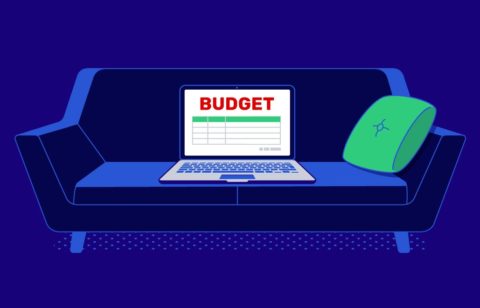Are you struggling with your finances because you come from a low-income household? It can be stressful when your income is not enough to feed your family. And we all know that when there is stress, happiness eventually fades away. If you can’t do something about your financial situation, you might find that it affects your entire life.
While we do not want to appear materialistic, it is a fact that the lack of money often drives couples to argue. In fact, one of the most common reasons for marital fights involves finances. Fortunately, there is something you can do about it.
According to an article from Bloomberg, the U.S. poverty rate continues to rise while incomes trail behind. In 2021, the poverty rate increased to 11.6% – a slight incline from 11.5% in 2020. It was reported that 37.9 million people were in poverty last year, which is almost 4 million more than in 2019.
As the economy gradually recovers from the COVID-19 pandemic, many people are still living paycheck to paycheck due to lay-offs, pay cuts and inflation. One way to improve your financial situation and escape a low-income household is by finding ways to earn additional money to propel your finances forward.
But before doing that, you must find the motivation to make the sacrifices necessary to reach your goals. And here is where it can get confusing. Finding that motivation requires that you have a positive attitude.
Set the right goals and change the habits that will turn your negativity around. Take note that finding happiness is more than just earning more money. It is about teaching yourself to value what is important and be content with experiences, not objects.
3 ways to live a happy life without a lot of money
That last part can be quite a challenge since it is hard to find happiness when you can barely cover your children’s financial needs. When you are constantly worrying about paying the bills, you are not feeling light and happy about your current predicament. So, what can you do?
The key is to determine the simple truths that will help you find financial happiness. Here are 3 tips that might help you get started.
1. Have goals and monitor their progress.
This is one way to proactively motivate yourself to make changes. Make sure that your goal is realistic. Big or small, it has to be well-defined and achievable. As you track your progress, do not concentrate on how little you have. Instead, focus on being thankful that you can contribute anything to it at all. Even with small steps, there is progress.
2. Be close to people in the same situation as you.
Do you have friends who come from low-income households? They are likely to empathize with your situation and possibly offer support and guidance during trying times. You can cheer each other up without judgment since you are all in the same boat. Not only that, but you can also find things to do together with the same budget.
3. Change your mindset.
Finally, you should change your mindset about your finances. This can be tough compared to those who have more financial abundance but taking control of your finances is the key to wealth. Try to accept the fact that you have limited choices. Instead of giving up, take that as a challenge. Start by focusing on what you have accomplished despite your financial problems.
A study from Columbia University’s psychology department shows it is possible to make our negative memories more positive. As an evolutionary defense mechanism, we tend to remember negative or traumatic experiences more than positive ones. However, dwelling on these negative experiences can lead to anxiety or depression if your mindset does not change. It can be difficult to see the positive side in certain cases but try figuring out what you learned from it. Did you become stronger and wiser? For example, perhaps growing up in a low-income household helped you develop the motivation and work ethic to obtain financial success for yourself and your family.
Happiness, if you ask anyone, is just a state of mind. If you are willing to put yourself in a happy position, you do not need large amounts of money or objects.
How to level up from a low-income home
Despite coming from a low-income household, you can strive to provide more for you and your family. Give your kids the opportunities that were limited or unattainable for you by following these tips:
Live a frugal life and accept that you have a limited income.
This means prioritizing where your money goes or making significant changes like downsizing into a smaller home. When done correctly, frugality will give you a new perspective on your life.
Make sure you have extra money.
The reason to live a frugal life is so that you can lower your spending and add to a savings account. This is the money that you can use for wealth building. It will help you increase savings for an emergency fund and allow you to invest your money to help it grow. By having extra funds every month, you should be able to grab opportunities that you never had before.
Involve the family.
Building up a low-income household requires participation from everyone in the family. Ask them to be thrifty about their spending and to find extra money wherever they can. An after-school job, food delivery and babysitting are popular ways for kids to sock away some cash.
Your life can still be rich while living on a limited budget. And remember that having experiences with your loved ones offers an invaluable way to spread happiness around.







